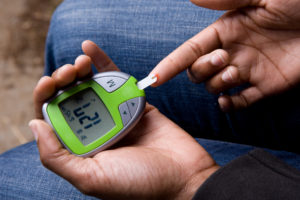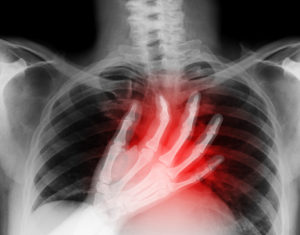
About 80% of COVID-19 patients have mild symptoms which can be managed at home, however, patients older than 60 and those with preexisting medical conditions are at a higher risk of severe disease and death. These medical conditions include chronic respiratory disease such as asthma, diabetes and heart disease.
If you are in one of these vulnerable groups, you need to take extra precautions to avoid getting sick. Let’s discuss what you can do to protect yourself.
Asthma
Having asthma does not increase your risk of contracting COVID-19, but initial reports from the CDC stated that people with moderate to severe asthma may be at higher risk of getting extremely sick from COVID-19 and could have pneumonia and acute respiratory disease. Viral infections can cause asthma symptoms to “flare up.” In addition to this, patients with asthma already have compromised lung function which could worsen if they are infected with COVID-19.
However, preliminary studies have not confirmed this increased risk. Recent data released by the New York Department of Health did not include asthma on the list of the most secondary health conditions in patients with coronavirus.

Keep your asthma under control
In any event, having your asthma under control is better than having an asthma flare and COVID-19 infection at the same time. You should therefore follow your asthma action plan.
There have been several reports that steroids are contraindicated in COVID-19 disease, however this was only in hospitalized patients who were not on steroids before. Stopping or changing your medications might cause an asthma exacerbation, so you should continue your controller inhalers with steroids. Make sure you have an emergency supply of your asthma inhalers and avoid your asthma triggers.
Treating an exacerbation will require that you go into the emergency room or urgent care where you have a higher risk of being exposed to someone who has COVID-19. This is another reason to keep your asthma under control.
Diabetes
Patients with diabetes while also not more likely to get COVD-19, are at a higher risk of developing serious complications and even death from this disease. Recent data from Louisiana Department of Health, showed that 41% of all the patients who died from COVD-19 had diabetes.
High blood sugars weaken your immune system making it harder to fight off infections and control the spread of the virus. It is also believed that viruses thrive in environments of elevated blood sugars. The viral infection as well as the high sugars cause increase inflammation and internal swelling. Patients with diabetes also tend to have other disease-related complications such as heart disease and hypertension which also increases the risk of more severe complications.

Have a Plan
Select a friend or family member who you can act as your emergency contact. They should have a list of your medications and why you take them as well as phone numbers of your doctors, pharmacy and insurance provider. You should have enough insulin or tablets for at least a week ahead in the event you are sick or unable to go in for a refill. It might be best to ask your doctor to send a three-month refill of your medication, so you don’t have to leave your home. You should also have extra supplies like alcohol wipes, lancets, needles and testing strips.
Keep your diabetes under control
If your blood sugars are under good control, your risk decreases to that of an individual without diabetes. Make sure you are checking your blood sugar regularly, so you know what your numbers are. Stay away from foods high in carbohydrates which will increase your blood sugar and still exercise if you are able to.
Heart Disease
Early reports showed 40% of hospitalized COVID-19 patients had serious heart conditions such as heart failure, coronary artery disease and congenital heart disease. There are many reasons why people with underlying heart disease are more likely to develop more severe symptoms.
When the lungs are affected by the virus, the heart must work harder to get oxygen to the body’s tissues. This can worsen the situation in someone with heart failure whose heart is already not pumping efficiently. Viral illnesses such as COVID-19 also raise the risk of a heart attack in people who have plaque build up in their blood vessels by causing this plaque to break off and block the arteries that supply the heart. Finally, people with heart disease may have a weakened immune system making them more susceptible to infections.
Actions to Take
You should continue to take your medications as prescribed for your heart failure or hypertension. Initially it was believed that ACE- inhibitors and Angiotensin-II receptor blockers (ARB) were harmful but this was not proven. You should also make sure you have at least a 2-week supply of your medications.
 Dr. Kelly N. Wood, MD is an internal medicine physician, board-certified in Endocrinology, Diabetes, and Metabolism. Dr. Kelly is currently in clinical practice in Atlanta, Georgia.
Dr. Kelly N. Wood, MD is an internal medicine physician, board-certified in Endocrinology, Diabetes, and Metabolism. Dr. Kelly is currently in clinical practice in Atlanta, Georgia.
Through a multi-dimensional platform that addresses the mind, body, and spirit, Dr. Kelly lives out her passion to help others achieve total wellness and lead a balanced life. She makes expert health and wellness advice accessible to all through speaking engagements, media appearances, her Facebook show, and personal blog (drkellywoodmd.com).
Beyond the stethoscope, Dr. Kelly is recognized as “The Bounce Back Coach,” helping high-performing women overcome past hurt to have a healthy and happy relationship. Her debut book, “Bounce Back to Better: Recovering from the Disappointment of a Failed Relationship,” walks readers through her personal journey of reconstructing her life after her engagement ended.
Please connect with Dr. Kelly at drkelly@drkellywoodmd.com









